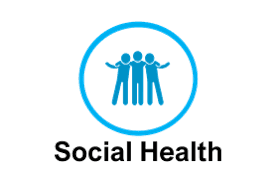Health promotion is a program of providing awareness and empowerment to the people of communities to adopt healthy behavior. It plays an active role in reducing the risk of developing chronic diseases and other morbidities defined by the World Health Organization.
The whole world may be divided into two major categories: developing and developed countries or high, medium, and low-income countries. High-income countries are developed countries while medium and low-income countries may be considered developing countries. In such a way, there must be two different approaches for a well-accepted health promotion campaign and social mobilization because of their literacy rate, per capita income, living standard, social, cultural, religious influences, and priorities.
The two health promotion approaches may be named which are as under.
- Basic Approach
- Advanced Approach
In the basic approach, health promotion objectives must be at least the people living in developing countries may know.
- The symptoms of communicable and non-communicable diseases are relevant to their locality as well as the country.
- They must consult with a Doctor in a hospital nearest to their locality when they are ill or feel sickness, not only consult with religious scholars or eat homemade herbal medicines whoever advised them.
- They must consult with a Doctor in a hospital nearest to their locality when they are ill or feel sickness, not only consult with religious scholars or eat homemade herbal medicines whoever advised them.
- That consultation with a Doctor in a hospital will not be under their small savings or will not through them below the poverty line due to UHC.
- Elaboration of health products in terms of primary, secondary, tertiary healthcare, rehabilitation, and palliative care also how and where they will be available for their facilitation.
- Induction of health promotion in the syllabus of early school education.
- Social mobilization for maximum participation of notables and community members in seminars, conferences, and social gatherings.
In developing countries, such practices prevail due to low literacy rates, higher cost of treatments, Inactive, dead, or inequality of health system, social, cultural, or religious norms, and remote areas.
Advance Approach
Advance Approach
In developed countries, the objectives of the health promotion approach must be a little bit advanced.
- The people must know the symptoms and names of communicable and non-communicable diseases relevant to their locality and the country.
- They must know that consultation with a doctor in a hospital will not be a burden on their small savings or will not throw them below the poverty line due to UHC.
- Elaboration of health products in primary, secondary, and tertiary healthcare, rehabilitation, and palliative care and how and where they will be available.
- How good the community’s health leads to a healthy society and increases the earning capacity of adults, learning abilities of children, and living a meaningful life of old age citizens. A healthy society plays an essential role in building up strong economic conditions. A healthy society is the backbone of the economy of the country.
- Social mobilization for maximum participation of notables and community members in seminars, conferences, and social gatherings.
Both promotion approaches must focus on the beneficiaries of communities and encompass the insurance companies, service providers, pharmaceutical and surgical industries, media agencies, and NGOs through capacity-building the non-communicable, training sessions, and competitions on the following subjects.
- Actuarial calculations for risk management to calculate competitive rates by insurance and reinsurance companies for diversification of insurance portfolio to reduce the risk of paying a significant obligation resulting from an insurance claim.
- Strategic purchasing by service providers including doctors and paramedic staff and pharmaceutical and surgical industries, their capacity building to accommodate beneficiaries of UHC and to compromise on standard rate list of treatments, procedures, and services.
- Sharing of ideas of social, electronic, and print media campaigns for the mass level of people in different communities.
- Activation and reactivation of NGOs network downwards to grass root level for the participation of notables of communities in promotional activities.
- Training sessions local and abroad for health teams to explore their vision and successful implementation of UHC. It is a continuous and infinite process to equip the workforce for the achievement of maximum targets.
Multiple health promotion models are already available in the market that may be adopted, or the available model may be modified, or new models may be developed according to the requirements of communities, the availability of resources.
More detail





These approaches are suitable for our country and poor people , who are not afford any treatments .
ReplyDeleteBeneficial for Community
ReplyDelete